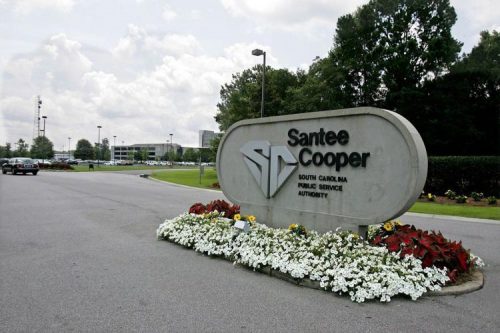Oran P. Smith: Practical meets principle on Santee Cooper
This op-ed was written by Palmetto Promise Senior Fellow Dr. Oran Smith and was published in the Spartanburg Herald-Journal.
Because I registered my opinion way back in 1994, surely I was among the first to call for the state to sell Santee Cooper and get out of the utility business. But that said, my opinion has evolved since then.
In the 1990s, for myself and many others in the Upstate, sale was a purely a matter of principle. Governments, particularly state governments, simply should not be owning and operating businesses. That was for the private sector.
Back then, when it came to Santee Cooper, many of us felt that even a private sector monopoly would be better than a rogue state agency. At least those running the monopoly—from the boardroom to the C suite—would have wide and deep experience in electric utility management.
Today, when I look at the Santee Cooper issue, my belief about the “core functions of government” remains. But the principles found in social science about the role of government have been bolstered, even overshadowed, by the firm numbers of the harder sciences.
Economists and other experts in public finance (consultants to the department of administration, consultants to the legislative Santee Cooper committee, and affiliated economists of Palmetto Promise Institute) have delivered a consistent message about Santee Cooper: its $6 billion debt must be paid by Santee Cooper (and electric co-op) ratepayers or a force outside Santee Cooper.
The debt is the determiner (or should be) for the future of the agency.
It appears that a part of that outside force will be Dominion Energy. An outcome of the Jessica Cook et al litigation is that the new owner of SCE&G has agreed to pay a part of the tab to Santee Cooper ratepayers for V.C. Summer. But much more debt remains, and it will be shouldered by ratepayers from some of the poorest areas of South Carolina.
When the future of Santee Cooper began to be debated in the General Assembly earlier this year, the Department of Administration (Admin) presented the legislature three options, each of which Admin staff sweetened through hard negotiations. That meant that other than an obsession with legislative process questions, the issues preventing sale left to be resolved were whittled to only a few—legislation, liabilities, and cash.
Looming liabilities (pensions, Pee Dee coal plant litigation and a couple others which can be roughly quantified) must be addressed. But potential liabilities can be factored into the sale.
Lengthy legislation must be passed to provide security for a buyer in South Carolina’s largest ever transaction. But the details of that legislation can be fine tuned.
Most important of all is the issue of cash. The effects of COVID-19 on our state budget have taken away a projected surplus we had planned to spend on items like raises for teachers and law enforcement—from Spartanburg to Socastee and everywhere in between. If those investments in the future are to be maintained, we need cash now.
So, if liability due to pensions and lawsuits is settled, if rate legislation is fine-tuned, and if the state is left with an acceptable amount of hard cash on the barrel head, why would we not sell Santee Cooper?
Unless we are venerating a local institution just for the sake of venerating it, to not accept needed and substantial statewide cash for an entity that we should not own in the first place—and thereby restoring a portion of the likely cuts in education, corrections, and health—would be irresponsible.
Setting governmental theories aside, hard numbers and facts alone dictate that selling Santee Cooper should stay on the legislative table. The sale option should not be dropped in light of COVID. Sale is made even more sensible in the wake of it.




